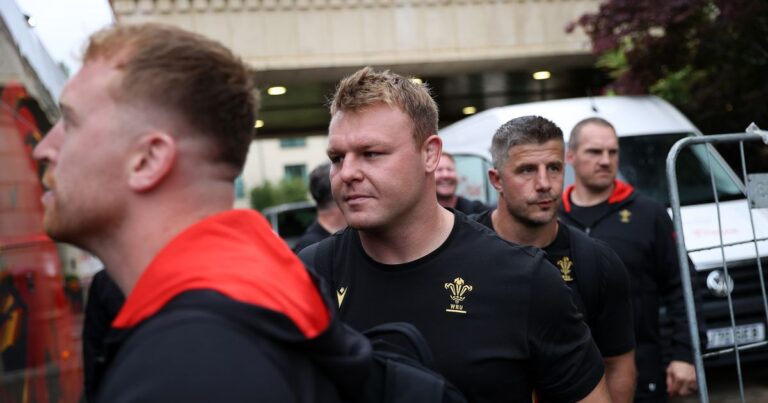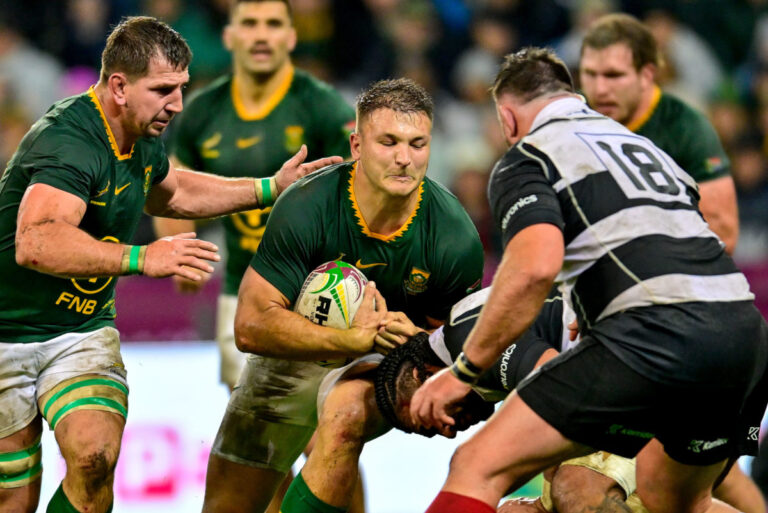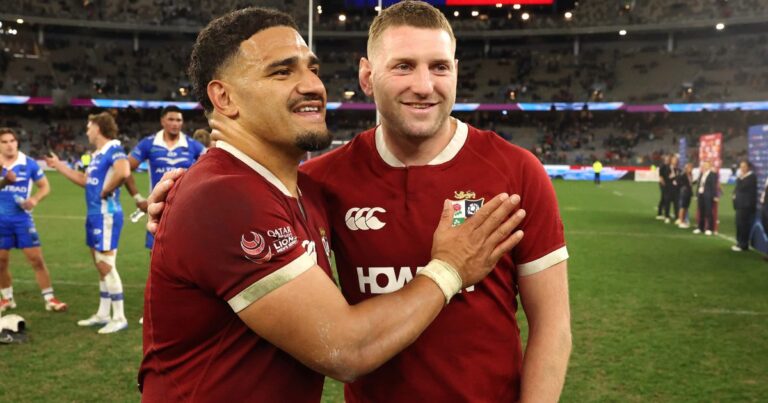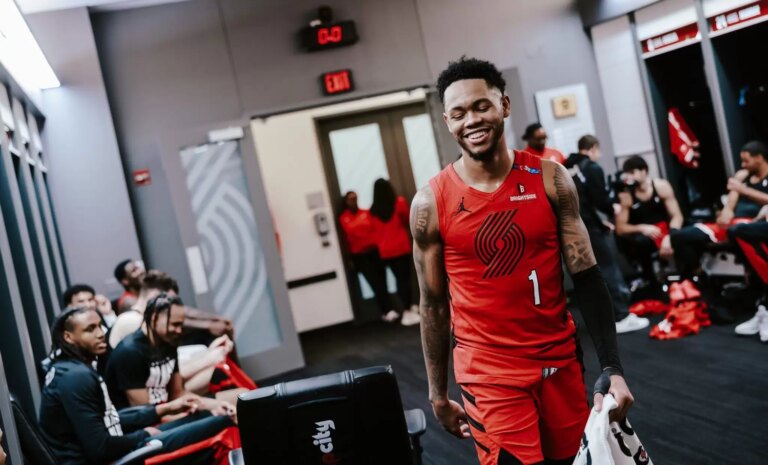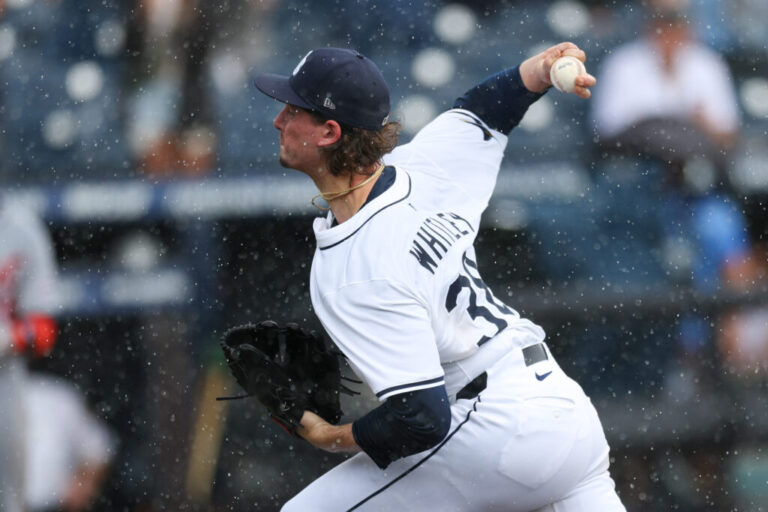
The British and Irish Lions seldom amount to more than the sum of their parts. Many a tour, even in the professional era, has finished as an uneasy mishmash of cultures working at cross purposes. On one or two, the aggregate of four nations has not proved better than one single country with a well-honed and unified sense of intent. Far from it.
In a frank and candid interview at the end of the Autumn Nations Series ex-World Cup winning coach Sir Clive Woodward described some of the regrets still lingering from the biggest disaster in Lions history, the 2005 tour of New Zealand.
The tone of the article started as it meant to go on: “Being brutally honest, I wish I’d just stuck to being a Lions player. I toured South Africa in 1980 and New Zealand in 1983 and loved it. But I didn’t really enjoy my time as coach in 2005. It [was] a hugely prestigious role, but ultimately I regret taking it on.”
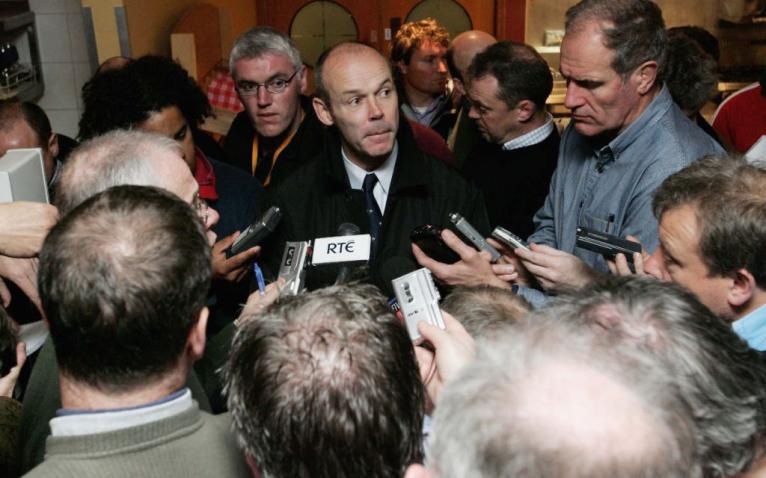
Sir Clive is echoing the thoughts of another knight of the realm from the other side of the world, Sir Graham Henry, who took up the same gauntlet back in 2001. Woodward concedes he needed a coaching sabbatical, and complete break from the game after winning the World Cup in 2003. The enormous emotional backwash of the tour to Australia cost Henry his job with Wales, and it took the better part of two years for him to fully recharge his batteries, and work his way back out into the light with the Auckland Blues back home.
There is little doubt the England team of 2001 would have performed better than the Lions in Australia that year, even if they could not bear comparison as a collection of individuals. Limited but known realities are a sounder basis for success than spectacular but speculative potential.
Wind the clock on to 2013 and another visit to the same country. Wales head coach Warren Gatland achieved success by picking 10 of his own Welsh team to beat the Wallabies in the decisive third Test, including Jonathan Davies ahead of iconic Irishman Brian O’Driscoll at centre.
As ‘Foxy’ recalls, the selection caused ‘carnage’: “There was a fair bit of abuse. My phone didn’t stop. I went to meet mum and dad for lunch in Sydney the day before the Test and they jokingly made me walk 15 metres ahead of them to the café. My own parents didn’t want to be seen with me!”
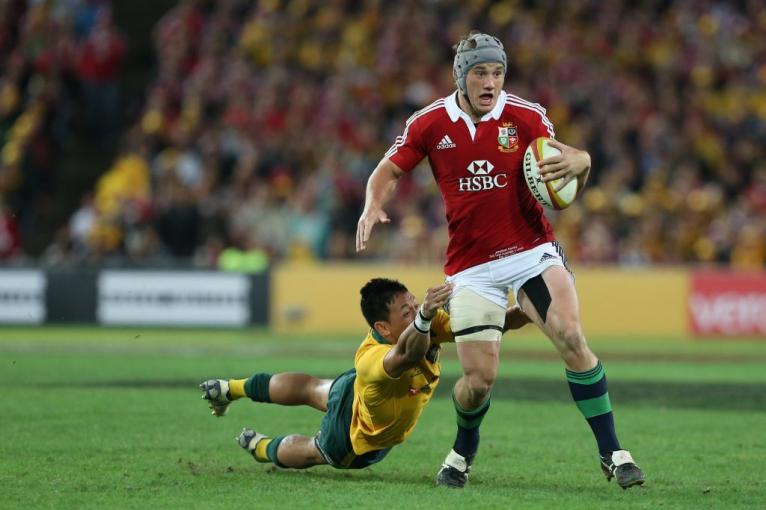
It would have been far, far worse for Gatland if the Wallabies had won. He would have become coaching pariah instead of a hero.
The balancing act is delicate indeed. Woodward discussed his the selection of 20 English players in a 44-man squad, including two who had retired from international rugby [Neil Back and Lawrence Dallaglio] and one recently returned from long-term injury [Richard Hill]: “In 2005, I found it very difficult not to select my England [2003 world cup-winning] players for the Lions.” As it turned out, some were quite literally, over the hill.
Four years later, he had been reluctant to allow England’s advanced IP to pass too freely into the circulation of a squad coached by one of his Six Nations rivals: “It is close to impossible, in my opinion, to escape the feeling you are giving away some of your rugby intellectual property by passing on your knowledge to coaches and players from other teams.”
The psychological dynamics are fiendishly hard to manage, and the same challenges will face Andy Farrell in 2025. His Ireland charges were riding a 17-match winning streak and ranked world number one when they lost to the All Blacks at the quarter-final stage of last year’s World Cup. Although they went on to win the subsequent Six Nations title, performances this November have failed to build on the certainty Ireland should remain the foundation stone of the Lions.
The usual difficulties of melding the best of England, Ireland, Scotland and Wales within a ludicrously compressed timeframe will be slightly eased in 2025. Premiership Rugby has agreed to move its final one week further back in the calendar [14 June] to allow Farrell’s charges two whole weeks of preparation time for the first game against the Western Force, on 28 June. In 2017, the Lions squad landed in New Zealand just three days before the opening match and jet-lagged players could not stay awake on the trip to the stadium. In 2021, the Lions’ pre-tour warm-up versus Japan was played on the very same day as the Premiership final itself.
If a fortnight seems like a heaven-sent blessing set against that background, ‘Faz’ will also have another problem unfamiliar to his predecessors – how to integrate a goodly number of Anglo-Welsh players who ply their trade in the Top 14 in France. Back-rowers Jack Willis and Courtney Lawes and fly-half Owen Farrell are prime tour candidates, while others such as Henry Arundell, Lewis Ludlam, Kyle Sinckler and Joe Marchant are outside bets. Welsh second row Will Rowlands is somewhere in the middle ground between ‘probable’ and ‘possible’.
All play in the Top 14, and in France the last day of the regular season is 7 June, with the fate of the Bouclier de Brennus decided on the same day the Lions trot out at Perth Stadium, eight days after their preparatory game against Argentina in Dublin.
Willis and Lawes should be in the Lions squad. As Woodward wrote in his column: “Willis, who is unavailable for England because he plays his club rugby in France with Toulouse, undoubtedly makes my Lions [starting] XV.
“He’s not playing international rugby now due to the ridiculous RFU ruling on foreign players, but he’s a Lions first choice. Of course, the French season clashes with the start of the tour.
“As a coach, you want to pick the best players you can, and Willis falls into that category. The same applies to Farrell and Arundell, who are at Racing 92 in Paris.”
Along with the inimitable Pieter-Steph du Toit, Lawes is one of the two best sixes on planet rugby, and he believes exposure to the ProD2 has taken his play to even more stratospheric levels. On a recent TNT Sports broadcast, he commented: “I actually feel I’m a better player than I was at the end of last season. I am carrying probably two, three times as much as I was in the Premiership, just because my roles have changed. I am averaging two or three turnovers a game.
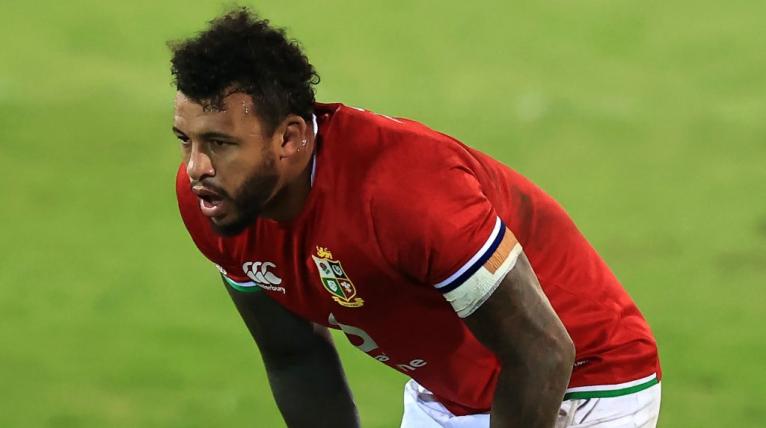
“I have been challenged to change my game slightly from what it was in the previous few years in my role at Saints.
“I’d love to get the opportunity to actually see if I have become better at Test level. I don’t know if I will get the opportunity to go out to Australia with the Lions, but if I do, I’ll be buzzing for it.”
A Lions Test back-row featuring Caelan Doris in between Willis and Lawes would cover all the bases and be formidable indeed, and Australia would need a Will Skelton to combat that trio, with some combination of Maro Itoje and either Tadhg Beirne or Joe McCarthy ahead of them.
One problem Joe Schmidt will need to solve in time for the first Test on 19 July is the right mix of exit plays. Against Ireland on the final weekend of the November tour, the hosts were able to sustain pressure on the Wallabies for long periods. They kept the ball when they had it, and they forced a series of short exit kicks when they didn’t. Ireland had 19 lineout throws to only nine by Australia, and the squeeze seemed to be permanently ‘on’.
Throughout the 2024 season, Schmidt’s men profited from the use of runbacks on opposition kick-offs. Tom Wright and Len Ikitau were able to hurt even the mighty All Blacks when the ball was shifted into the outside channels.
It is the same format in both clips, with the ball going through Noah Lolesio and out the back of a forward pod with Fraser McReight at its tip, and the break being engineered off a pass from Wright. The pattern was embellished further in the tour wins over England and Wales.
Even when the runback with ball in hand comes to a halt in the Wales example, there is the option for a long kick downfield and another exit ‘win’ for Australia.
The complexion of Wallaby exits began to change on the final two games of the tour.
;
Scotland adopted the simple expedient of dropping a long, high kick-off straight on to Wright in centre-field, ruling him out of the subsequent play, while Ireland were clearly better prepared to defend the threat he presented on the runback from left to right.
That reduced Australia to a succession of short box kicks to touch off the boot of either Jake Gordon or Tate McDermott, and that is one of their weaker suits. I counted six exits averaging no more than 20 metres distance gained.
In both cases the ball sails into touch just outside the Wallaby 22, and there is no release of pressure on the defence.
Australia can take comfort from the fact Lions overseas adventures so rarely attract the cooperation of the club games in the UK and France. Preparation time for an eight-10-match tour is always severely limited.
That is a part of the reason why four is seldom much better than one, and Farrell will have to work hard to make his new two-week allowance really count. It may yet stop him selecting some leading lights who deserve to make the tour. The Lions can ill afford another outstanding coach wounded rather than decorated by the brand.
